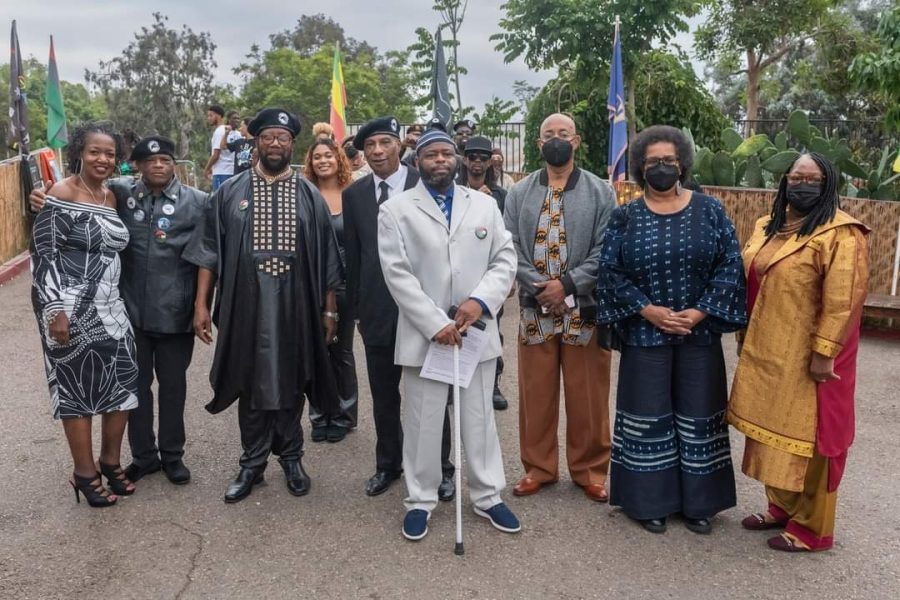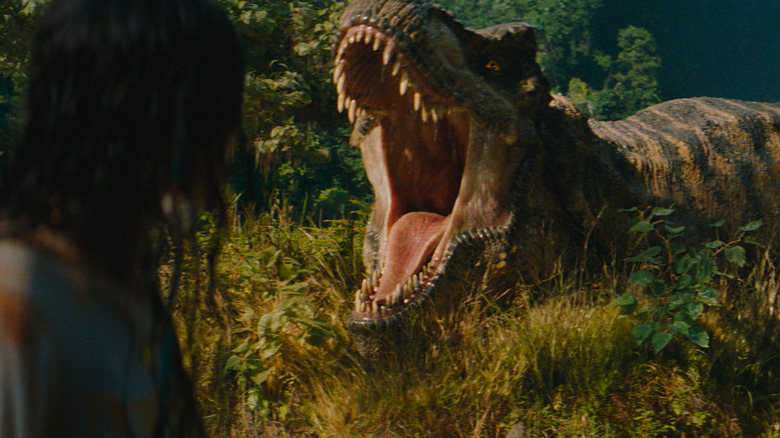If the power of knowledge can change the direction of the future, then one must simply learn the context of the truth.
What is that truth?
The learning of African American history can continue forever, so even as Black History Month comes to a close, there is no time limit.
In May of 1964, Rev. Martin Luther King Jr. gave a speech at the Open Air Theater at San Diego State University. King’s message of justice and equality for all spread from city to city as this was the time of The Civil Rights Movement.
To carry on the movement, community organizations formed.
The Black Panther Party was a political organization founded by college students Bobby Seale and Huey P. Newton in October of 1966 in Oakland, California.
The Black Panther Party chapter in San Diego was created shortly after by students who attended SDSU, which at the time was known as San Diego State College. Of these students were Shirley George-Meadors and her boyfriend Kenneth “Kenny” Denmon.
George-Meador’s brother Henry Lee Wallace is the current chairman of the San Diego Original Black Panther Party for Community Empowerment.
The US Organization is led by Maulana Karenga. The group’s ideals revolve around the Seven Principles of African Heritage. Their purpose of bringing African culture teachings to the United States culminated in Karenga’s invention of Kwanzaa.
Last October, the Black Panther Party and the US Organization signed a peace treaty to end a rivalry that lasted over 50 years.
In January of 1969 at the University of California, Los Angeles, an incident occurred between the two parties, which left two people dead. According to the New York Times, FBI Director at that time, J. Edgar Hoover exploited the situation to put the two organizations against each other.
“The FBI and CIA launched a counterintelligence program, which wasn’t just investigating, it was to stir up some tension between the groups that were involved with civil rights,” Wallace said. “They wanted to destroy the movement because we were bringing awareness to the people and they didn’t want people to be aware. They wanted everybody to believe they had to know about the Europeans and about nobody else, and because we asked them in our Ten-Point Platform to teach us education that reflects our true nature and who we are-that was a threat.”
The peace treaty took place at the World Beat Center in Balboa Park at the time of San Diego’s Black Panther Party’s 55th Anniversary. Leaders of the two prominent empowerment groups signed a reconciliation agreement, in honor of forgiving each other over the rivalry that was instigated from years past.
“If you tell the truth about what really happened in this country, people would be angry. During my time, it was something that they knew but didn’t want to talk about. They didn’t want to upset the cart. They hoped things would normalize itself out,” Wallace said. “But you can’t move forward if you don’t know your true history. There is always going to be something to miss in your spirit and soul because the treachery, the demeaning, the disrespect that our people suffered-is in our DNA.”
Wallace stated that the future is shaped by the generation now. He calls for action to vote and to take things up with politicians in the community to make a difference.
Karenga shared his hopes for them as well. The first one being that young people continue and intensify the struggle for a just and good society and a good and sustainable world.
“My hope is that they will continue to believe in and pursue the good, that they will continue to seek and speak truth and do and demand justice, that they will be constantly concerned with the world and all in it and that they will help build a united movement committed to an inclusive human good and the well-being of the world,” Karenga said.
“And my hope is that they will remember that this is ultimately our duty: to know our past and honor it; to engage our present and improve it and to imagine a whole new world and forge it in the most ethical, effective and expansive ways.”
The truth is, knowing about the past affects the decisions made in the present, which overall changes the outcome of the future.
Martin Luther King Jr. walked so we could run.







